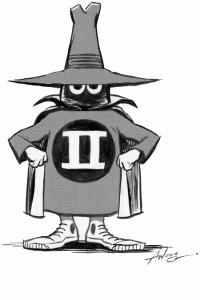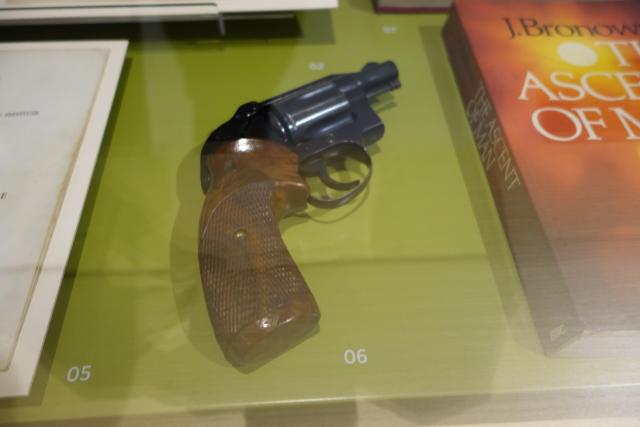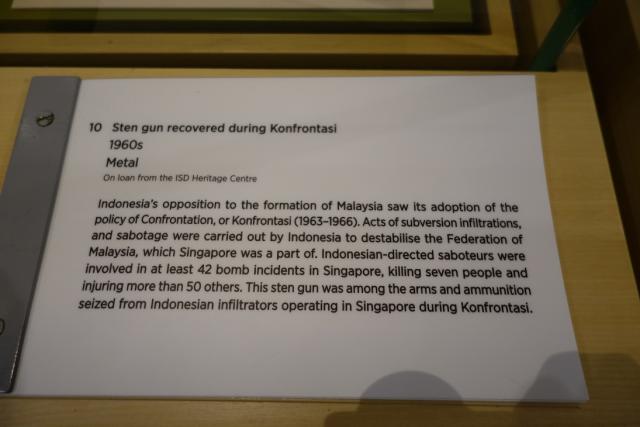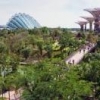Search the Community
Showing results for tags 'Kuan'.
-
https://www.nytimes.com/2023/04/12/opinion/international-world/singapore-autocracy-democracy.html By Farah Stockman Do benevolent autocracies get better results than democracies? I’ve pondered this question since last summer, when I heard highly educated Kenyans tell me that democracy hadn’t brought the economic development they sorely need. They gushed about the way that Lee Kuan Yew, the founding father of modern Singapore, transformed his impoverished city-state into one of the wealthiest societies on earth in just one generation. Consider that in 1960, Singapore and Jamaica had roughly the same G.D.P. per capita — about $425, according to World Bank data. By 2021, Singapore’s G.D.P. had risen to $72,794, while Jamaica’s was just $5,181. It’s no wonder that Lee Kuan Yew has become a folk hero. It’s not hard to find people from South Africa, Lebanon and Sri Lanka praying for their own Lee Kuan Yew. Last month, President Biden hosted his second democracy summit and gave a speech about the epic global struggle between democracy and autocracy. Singapore — a U.S. partner rated “partly free” by Freedom House — was not invited. But Washington’s talking points about the imperative of democracy ignore a simple fact: Some autocrats are admired because they get results. While established democracies do better economically than autocracies overall, the handful of autocrats who focused on economic growth — rather than their own Swiss bank accounts — have managed to outperform fledgling democracies, according to Ronald Gilson, professor emeritus of law and business at Columbia University, who co-wrote a 2011 paper, “Economically Benevolent Dictators: Lessons for Developing Democracies.” Chile under Augusto Pinochet, South Korea under Park Chung-hee and China under Deng Xiaoping stand out as countries that achieved wholesale economic transformation, while weak democracies stagnated. The paper, which was co-written by Curtis Milhaupt of Stanford Law School, spells out why benevolent authoritarians have an easier time plugging their countries into the global economy. Elites tend to resist big changes that would cut into their own bottom lines, even if those changes are good for the country. Autocrats have more tools to get them on board. An autocrat’s word can convince job-creating investors that their businesses will be protected, filling the void of a shaky court system. In a benevolent autocracy, legitimacy often comes not from elections but from the ability to show material improvements in people’s lives. In a democracy, leaders are often too busy fending off political challenges to make grand economic plans. They are frequently voted out of office before they can see those plans through. To win elections, politicians make short-term promises — like cutting taxes while increasing benefits — that don’t always make economic sense in the long run. But benevolent autocracies have fatal flaws, too. Benevolent dictators are hard to find. There’s no guarantee that they will stay benevolent or that their successors will be as competent. After a country successfully transitions its economy, the advantages of this system seem to fade. But by then, a system of nearly unchecked power at the top has been entrenched. Singapore is a case in point. Lee Kuan Yew contended that people don’t pine for democracy. First and foremost, he said, “they want homes, medicine, jobs, schools,” according to the 1998 book “Lee Kuan Yew: The Man and His Ideas.” He provided those things by pairing business-friendly policies from the West (predictable courts, low taxes, zero tolerance for corruption and an embrace of meritocracy) with socialist-leaning policies from autocracies (heavy government involvement in economic planning and little tolerance for dissent). He created a vast system of public housing, where about 80 percent of Singaporeans currently live. People buy and resell long-term leases to government-built apartments with money the government essentially forced them to save. Singapore holds elections, but the ruling party, which controls much of the media and a host of lucrative jobs, has remained in power since independence. Anyone who has visited the city-state of nearly six million people has seen how much cleaner and safer and more orderly it feels than the United States. Its airport doubles as a high-end mall. Public gardens bloom free of the litter, pickpockets or homeless encampments that have become familiar sights in U.S. cities. Robberies are so rare — and surveillance so pervasive — that some high-end bars don’t even lock their doors at night. Ferraris and Lamborghinis are everywhere, as if the slogan “a chicken in every pot” had turned into “a sports car in every parking space.” But now, eight years after the death of Lee Kuan Yew, Singapore is at a crossroads. It’s being run by his eldest son, Prime Minister Lee Hsien Loong, who leans heavily on his father’s legacy. Elections for the largely ceremonial post of president are expected in September and parliamentary elections are due by 2025. The prime minister’s potential successor has already been picked. But the ruling People’s Action Party has never looked so vulnerable. Critics say Singapore is becoming more like a plutocracy, in which well-paid yes men with the right connections to the Lee family rise up the ranks. Today, Singapore is a place where forklift operators can face jail time for taking one-dollar bribes but executives from the Singaporean conglomerate Keppel — who paid millions in bribes, according to the U.S. Justice Department — got off with “stern warnings.” (Officials in Singapore have said that they didn’t have enough evidence to take the case to court.) The trouble is that the system requires someone like Lee Kuan Yew at the top — strict and charismatic, as Michael Barr, author of “Singapore: A Modern History,” told me. “But no one who has that political skill would ever rise to the top today because that person would be regarded as a threat,” he said. Perhaps the clearest sign that something in Singapore has gone wrong is the fact that Lee Kuan Yew’s youngest son and one of his grandsons say they are now living in exile, fearful that they would be arrested if they ever returned. “My uncle doesn’t want competing claims to legitimacy,” Lee Kuan Yew’s grandson Shengwu Li told me over a cup of tea in Cambridge, Mass. “Authoritarian systems don’t survive by taking chances. If they think there’s a 5 percent chance I’ll be a problem for them, they want that to be zero.” The irony is that Mr. Li, a 38-year-old assistant professor of economics at Harvard who was just awarded a top honor in his field, doesn’t have political ambitions. Soft-spoken and cerebral, he says he’s happy working on his theorems in a place where nobody gives him special treatment because he’s related to Lee Kuan Yew. After 10 years studying at Oxford and Stanford, he got used to certain freedoms. In the summer of 2017, while he was visiting his parents in Singapore, he wrote comments in a private Facebook post that criticized the government for using the courts to silence its critics. The government is “very litigious and has a pliant court system,” he wrote. Soon after, he got a tip that he was about to be prosecuted for it. He hurried back to the United States. Even during the Trump administration, which was known for its harsh treatment of immigrants, he felt relieved to land on American soil because he knew there were independent judges, he told me. He was convicted in absentia in Singapore for scandalizing the judiciary and fined $15,000, which bars him from running for Parliament for five years. Last month, officials in Singapore announced an ongoing police investigation of Shengwu Li’s parents, who are accused of manipulating the then-90-year-old Lee Kuan Yew into changing his will and lying about it afterward. The accusation stems from a simmering disagreement over the fate of the family home, which Lee Kuan Yew said publicly at times that he wanted demolished after his death. Lee Hsien Yang, Lee Kuan Yew’s youngest son, says he has been fighting to honor his father’s wish not to have a cult of personality built around the house. But he says his elder brother, the prime minister, wants to preserve the house as a national monument to bolster his own political legitimacy. Lee Hsien Yang spoke out publicly against his brother, only to get hit with an investigation. Eventually, he fled the country, like his son. It seems to be an example of what Kenneth Paul Tan, a Singaporean professor of cultural studies, calls the “politics of evermore sophisticated bullying.” At its core, the fight isn’t about a house or a will. It’s about the future of Singapore. “The institutions in Singapore, whether it is the judiciary, the civil service, the army, the institutions of higher learning, have all gradually come under direct control in a way that stifles independent thinking and challenge,” Lee Hsien Yang told me. Lee Kuan Yew would solicit different views and occasionally change his mind, he said. “Today, the Singapore authorities no longer have people who would challenge the system to say, ‘Here’s my view. I don’t think you are doing the right thing.’ They are too well-paid.” (Ho Moon Shin, a government spokesperson, denied that Lee Hsien Yang and Shengwu Li are in exile, saying they are traveling on Singaporean passports and are free to return home. She also said Prime Minister Lee Hsien Loong recused himself from the cases involving the family house.) Lee Hsien Yang and his son Shengwu Li avoided politics for most of their lives, but since the feud over the house burst into public view, both have voiced sympathy for the political opposition, lending the legitimacy of that crucial family name. Yet their ability to help the opposition has been curtailed by the accusations against them. The episode has exposed the cracks in Singapore’s celebrated system. If Lee Kuan Yew’s son and grandson can feel compelled to flee, what can happen to ordinary people? Political scientists weren’t sure that Singapore’s highly successful system would outlast Lee Kuan Yew. By the end of his life, even the great man himself spoke of preparing for the day when his party would lose power. That’s the thing about benevolent autocracies: They tend to expire. They either cease to be autocracies — as happened in South Korea and Chile — or they cease to be benevolent.
-
Couldn't find this on MCF. If it's been posted before, my deepest apologies. http://www.straitstimes.com/breaking-news/...s-time-20130811 On Aug 22, 2012, I received a thank-you card from a Singaporean by the name of James Ow-Yeong Keen Hoy. From his elegant, cursive handwriting, I guess he must at least be in his 50s. Young people these days prefer to type, and when they do write, they simply do not write as beautifully. He wrote: "My family is deeply grateful and has benefited from your magnificent leadership and solid contributions that have enabled our nation to achieve peace, happiness, progress, prosperity, solidarity and security all these good years. A big thank you! "May we have the honour to sincerely wish you, Sir, peace and joy, wisdom and longevity and all the very best in the coming good years. And may our beloved country be blissfully and richly blessed and be mercifully safeguarded now and always. God bless." I quote at length from this card to highlight the enormity of the mindset shift, from an older generation, including this writer, his peers and his seniors, to a younger one that takes for granted Singapore's affluence. People like Mr Ow-Yeong have seen Singapore develop from the unsettling 1960s, when hardship and poverty were still the rule rather than the exception, to today's vibrant and cosmopolitan Singapore, providing well-paying jobs to a highly educated population. Many older Singaporeans also progressed from living in shanty huts to high-rise apartments with present-day conveniences and surrounded by safe neighbourhoods. They have a good understanding of the nation's imperatives - what it took for us to get here and what it would take to keep up our success - as well as its vulnerabilities. The younger voters do not share those views. Having been born into a Singapore that had in many ways already arrived, they see all that is around them - a working system generating stability and wealth - and they ask: "Where is the miracle?"... Even as things stand, we have regretfully shifted the system away from attracting the best talent through reductions to ministerial pay. If I were a Cabinet minister at the time the change came up for discussion, I would have stood firm. But the younger generation of ministers decided to go with the trend. It is true that no country in the world pays ministers as we do. But it is also true that no other island has developed like Singapore: sparkling, clean, safe, with no corruption and low crime rates. You can walk the streets or jog at night. Women will not be mugged. Police do not take bribes, and if they are offered bribes, there are consequences for the ones offering. None of this came about by coincidence. It took the construction of an ecosystem that requires highly paid ministers. With every pay reduction, the sacrifice that a minister makes - giving up his profession or his banking job - becomes greater. Some will eventually tell themselves: "I don't mind doing this for half a term, 21/2 years, as a form of national service. But beyond that, it has to be: thanks but no thanks." The final outcome would be a revolving-door government, which will inevitably lack a deep understanding of the issues or the incentive to think about problems in a long-term manner. Will Singapore be around in 100 years? I am not so sure. America, China, Britain, Australia - these countries will be around in 100 years. But Singapore was never a nation until recently. An earlier generation of Singaporeans had to build this place from scratch - and what a fine job we have done. When I led the country, I did what I could to consolidate our gains. So too did Goh Chok Tong. And now, under Lee Hsien Loong and his team, the country will do well for at least the next 10 to 15 years. But after that, the trajectory that we take will depend on the choices made by a younger generation of Singaporeans. Whatever those choices are, I am absolutely sure that if Singapore gets a dumb government, we are done for. This country will sink into nothingness.
-
Any bros saw the TV footage of him talking about this? Could not really hear him and you have to raise the TV volume. And his manner was very stiff... But for an almost 90 old man really From CNA: http://www.channelnewsasia.com/stories/sin...1203376/1/.html S'pore chooses new leaders very carefully: Lee Kuan Yew By Michiyo Ishida | Posted: 24 May 2012 2219 hrs
-
Hi, thinking of joining hokkien huay kuan to better my chance of getting my child into our preferred school. Any bro or sis have any experience. Can share?? TIA
-
Lee Kuan Yew’s Two Younger Children File Case on Interview Deal http://www.bloomberg.com/news/articles/2015-09-22/lee-kuan-yew-s-two-younger-children-file-case-on-interview-deal Lee Kuan Yew’s two younger children initiated court action in Singapore relating to an agreement between their late father, the city’s first prime minister, and the government. Lee Wei Ling and Lee Hsien Yang, executors of the elder Lee’s estate, filed a court application on Sept. 2, according to a record with the Singapore High Court. Their father’s agreement related to the "custody and use" of interviews given by the former premier to the government’s Oral History Department, according to a statement by the Attorney-General, the respondent. “The government will establish the proper interpretation and status of the agreement before the court,” it said in the statement. Further details of the case weren’t immediately available, and Lee Hsien Yang declined to comment. Lee Wei Ling wasn’t immediately available to comment. The Republic of Singapore’s founding father, Lee Kuan Yew, died on March 23 at the age of 91, triggering a nationwide outpouring of grief. More than a million people waited for as long as 10 hours to pay their last respects. Lee’s death and celebrations to mark Singapore’s 50th year of independence helped the ruling People’s Action Party, helmed by eldest son Prime Minister Lee Hsien Loong, extend its more than five-decade rule at the Sept. 11 election. The case is Lee Wei Ling, Lee Hsien Yang v Attorney-General, OS816/2015. Singapore High Court. Anyone heard anything about this ???
- 70 replies
-
- 3
-

-
- lee kuan yew
- lky
- (and 6 more)
-
For those who have yet to visit the exhibition in person or are maybe overseas and cannot make it down. http://www.nhb.gov.sg/eo/In%20Memoriam%20Lee%20Kuan%20Yew/ http://www.channelnewsasia.com/news/singapore/memorial-exhibition-for/1866078.html SINGAPORE: A memorial exhibition at the National Museum of Singapore dedicated to the late founding Prime Minister Lee Kuan Yew has drawn over 135,000 people since it started on March 25. In Memoriam: Lee Kuan Yew has seen its run extended twice due to popular demand, but the exhibition will close at the end of June. Those who have yet to visit, will be able to do so online. The National Museum has created a virtual interactive tour with a 360 degree view of the items and posters on display. Mr Daniel Tham, curator at the National Museum, said the virtual walk-through recreates the experience of actually being in the museum. "That includes the images that are on display, the caption and text panels and you also get to listen to audio speeches delivered by Mr Lee," he said. As a bonus, those who tour the exhibition online can look inside Mr Lee's famous red box briefcase which he used as to carry speeches, documents and readings. "We took many many still photos of a single spot, we put them together, then we developed it and packaged it," said Mr Alvin Neo, director from Zwaan, which produced the interactive virtual tour. The virtual exhibition is available on the National Museum's website. - CNA/ly
- 1 reply
-
- 3
-

-
- lee kuan yew
- lky
-
(and 4 more)
Tagged with:
-
A new exhibition at the National Museum, which is free for Singaporeans and Permanent residents. It houses more than 100 artefacts, many belonging to the late Mr Lee Kuan Yew, from his Oxley Road home. The exhibition is called 'We Built A Nation" on the ground floor of the National Museum. This revolver is cool. And Mr Lee's will on his house to be demolished. They even had a Sten gun recovered during Konfrontasi. A suggested pledge, by S Rajaratnam. The final version is a bit different from his suggestion. In this first video, just a quick walkthrough to show you that the Exhibition is not very big, however, you could easily spend an hour or so going through the various exhibits. Am working on the other video which takes a closer look at some of the artefacts.
- 2 replies
-
- 1
-

-
- lky
- lee kuan yew
-
(and 6 more)
Tagged with:
-
To pay tribute to the Late Mr Lee Kuan Yew, Dynamics Mechanic and Vinyl Mechanic are ready to give away tribute car decals and at no charges at all. Please make your way to our Kaki Bukit Branch to collect it. Per Car Per Decal. The car decals are ready for FREE collection.A tribute gesture from Dynamics Mechanic & Vinyl Dynamics to the Great SG Founder Mr Lee. Collection Venue : Synergy@KB 25 kaki bukit rd 4, #01-36 dynamics mechanic - vinyl dynamics Tel : 6341 6164 10am till 530pm Like us at : www.facebook.com/dynamicsmechanic for more updates
- 78 replies
-
- 33
-

-
*** Signature Gold Edition LKY Tribute Decal *** ====================================== Our very own DM tribute to the Late Mr LKY. GOLD Signature Edition of LKY tribute decals. Let's get a 1000 likes on this post to make 1000pc for FREE distribution. You can stick the Gold Signature limited edition on any surfaces you like, not only for cars. Please like our page for updates n annoucement, ( you may Un-like after the event) :- www.facebook.com/dynamicsmechanic www.facebook.com/dmvinyl Lets generate the 1000 likes on this post to determine how many we make.
-
I paid my last respects to Mr Lee Kuan Yew earlier today. I made this video to give all those who haven't done so a good idea of what the process is like. Yes, the wait may be long, but it was definitely worth it. As I waited, I marveled at all around me. The city, the trees, the Singapore River. Everything. What is Mr Lee Kuan Yew's most important contribution to Singapore? Just look around you. Spend your time reflecting on what Mr Lee has done for all of us. Let us now let him down as we take Singapore to even greater heights. Rest in peace, Mr Lee Kuan Yew. https://youtu.be/-Z3_-P-ju2U
- 5 replies
-
- 3
-

-
- lying in state
- lee kuan yew
-
(and 5 more)
Tagged with:
-
To all fellow motorists, We can all do our part to make the final farewell to a great man better. Please take note of the traffic arrangements: http://www.channelnewsasia.com/news/singapore/traffic-arrangements-for/1734200.html In a nutshell, avoid the civic district if possible.
- 2 replies
-
- 4
-

-
- lee kuan yew
- funeral
-
(and 5 more)
Tagged with:
-
Lim Kay Tong to play founding PM Lee Kuan Yew in the movie 1965 http://www.straitstimes.com/lifestyle/movies/story/lim-kay-tong-play-founding-pm-lee-kuan-yew-the-movie-1965-20141008 SINGAPORE - Despite an almost unanimous verdict among Singaporeans on social media that he is perfect for the role, veteran actor Lim Kay Tong admits he had to overcome cowardice before agreeing to play Singapore's founding prime minister Lee Kuan Yew in the local movie 1965. At a press conference on Wednesday, he says: "Two things in the 1960s that are stuck indelibly in my mind - the assassination of John F. Kennedy and Lee Kuan Yew's speech on the separation. Even as a child, you realise the significance of it, you see a different side to the man, a very human side. That press conference really defined him in a different way. "After reading the script, Lim, 60, thought he could take on the part.
- 44 replies
-
- 2
-

-
- lim kay tong lee kuan yew
- movie
- (and 5 more)
-
Mr Lee Kuan Yew (fifth from left) tossing the traditional yu sheng at a Chinese New Year dinner for Tanjong Pagar GRC held at Queenstown Primary School on Feb 3, 2012. Former prime minister Lee Kuan Yew will not be attending the annual Tanjong Pagar constituency Chinese New Year dinner on Tuesday night for the second consecutive year, as he is in hospital recovering from an infection. Former prime minister Lee Kuan Yew will not be attending the annual Tanjong Pagar constituency Chinese New Year dinner on Tuesday night for the second consecutive year, as he is in hospital recovering from an infection. Mr Lee, 90, has been hospitalised in Singapore General Hospital since Sunday with a fever and a bad cough caused by an infection, and is currently on antibiotics and recovering. "He has been advised by his doctors to avoid public appearances. As such, he will not be able to attend the Tanjong Pagar GRC Chinese New Year Dinner this evening. He would like to wish all Tanjong Pagar residents as well as Singaporeans a Happy Chinese New Year," said his press secretary in a statement. Mr Lee has kept up with his practice of attending the annual dinner over the years, during which he would make keynote speeches. But he missed the event last year for the first time due to health reasons. Source: http://www.straitstimes.com/breaking-news/singapore/story/mr-lee-kuan-yew-hospital-recovering-infection-miss-cny-dinner-second-t
- 59 replies
-
- lky
- cny dinner
- (and 5 more)
-

Lee Kuan Yew to join Lee Kuan Yew School of Public Policy
Viceroymenthol posted a topic in Lite & EZ
It must feel good to join a School named after you. Most people who have buildings or schools named after them have no opportunity to as they would have been dead by then. Lee is probably the first person in the world to have this experience. Singapore #1 again. Lee Kuan Yew to join LKY School of Public Policy as Distinguished Fellow Posted: 24 June 2011 1520 hrs Photos 1 of 1 Mr Lee Kuan Yew (file picture) SINGAPORE: Mr Lee Kuan Yew is joining the Lee Kuan Yew School of Public Policy at the National University of Singapore as a Distinguished Fellow. A statement said both the school and the university are delighted that there will be opportunities for students, faculty members and researchers to interact with Mr Lee and tap on his vast experience and insights into how societies are best governed in a globalised world. The school's dean, Kishore Mahbubani, said Mr Lee's involvement would significantly enhance the ability of the school to fulfil its mission and further raise the status of the school globally. Mr Lee will take on the appointment with effect from July 1, in addition to his current role as Senior Advisor to the Government of Singapore Investment Corporation (GIC). - CNA/fa -
holy crap!!!!!!!! last min come out this type of beedio
-
Anyone read the book or watch the video? This thread is for the discussion/review of this book. I only have time to watch the video, some part quite confusing In the video dId MM says that HDB flats are sold to us MINUS land cost? Is it true?
-
The Last Farewell to my Wife LKY Eulogy for Mama LHL LKY was alot more factual, but was quite touched by LHL I seem to glimpse that LHL had no choice in the path his life took, beginning to empathise with him alot more
-
Mrs Lee, R.I.P. http://www.channelnewsasia.com/stories/sin...1084739/1/.html Mrs Lee Kuan Yew dies at age 89 Posted: 02 October 2010 1933 hrs SINGAPORE : Madam Kwa Geok Choo - the wife of Minister Mentor Lee Kuan Yew, and mother of Prime Minister Lee Hsien Loong has died on Saturday. Mrs Lee Kuan Yew, age 89, passed away peacefully at home at 5.40 pm. A statement from the Prime Minister's Office said the wake is held at Sri Temasek, official residence of the Prime Minister located within the Istana grounds, from October 4-5. Visitors who wish to pay their last respects may do so on October 4-5 from 10am to 5pm. Members of the public may call 6835 6614 for any queries. A private funeral will take place on October 6 at Mandai Crematorium. The family requests that no obituaries and no wreaths or flowers to be sent. All donations will go to the National Neuroscience Institute (NNI) Health Research Endowment Fund. Madam Kwa was one of 8 children. An outstanding student at Methodist Girls' School, she also topped the 1936 Senior Cambridge Examination for the whole of Malaya and Singapore. At Raffles Institution, she caught the attention of a young Lee Kuan Yew when she gave him unexpectedly stiff competition for a Queen's Scholarship. But academic rivalry aside, he knew he had found his equal, and his soul mate. Their relationship grew through the years of Japanese Occupation, and by September 1944, love had blossomed. When World War II ended, Mr Lee left to study law in England in 1946. But he was miserable until she joined him at Cambridge University a year later. The two married secretly on 23 December 1947. She had just turned 27, and he was 24. Mrs Lee said: "You can't explain these things ... He had tremendous aplomb, self-confidence, very jaunty, he was a handsome young man." When they returned to Singapore in 1950, they tied the knot again, this time with their parents' full knowledge. When Mr Lee got more involved in politics and became Singapore's Prime Minister in 1959, it was Mrs Lee and his younger brother, Lee Kim Yew, who built up and expanded Lee & Lee - the law firm all 3 had set up in 1955. Mr Lee once said his great advantage was that he had a wife who could be a sole breadwinner and bring the children up. That was his, quote, "insurance policy," which allowed him to play the role he did in Singapore's history. In October 2003 - Mrs Lee suffered a stroke while on a visit to London. Fortunately, she made a swift recovery and was again seen in public at her husband's side at community events, and on official trips overseas. And she was there when Lee Hsien Loong was sworn in as Singapore's third Prime Minister. Although she had shied away from a high profile, her contributions to Singapore had been most significant, and pivotal to its history. "If she weren't an influence, supposing I had married somebody else, I might have become a different person, not that I would be a different person, but the things that I would have been able to do, the kind of backdrop I would have had, family, support, would have been different," said MM Lee. - CNA /ls
-
Dun bother with the local media as they dun provide the full content. Below is the full interview. http://www.nytimes.com/2010/09/11/world/asia/11lee.html?_r=1
-
FROM SGH THAT IS. WE WISH HIM THE VERY BEST IN HIS RECOVERY SO THAT we can continue to benefit from his almost 90 years of stored RAM in his head. Our country needs him. We the citizens need him. PAP needs him and and GIC and other important ministries need his guidance and intellect. I am pleased that he has checked out of SGH and gota serve our country well. We can hardly find any loyal Singaporean as loyal as him. All the best to you MM Lee! *Salute* MM Lee discharged from SGH By S Ramesh, Channel NewsAsia | Posted: 14 September 2008 1704 hrs Photos of Related News

















